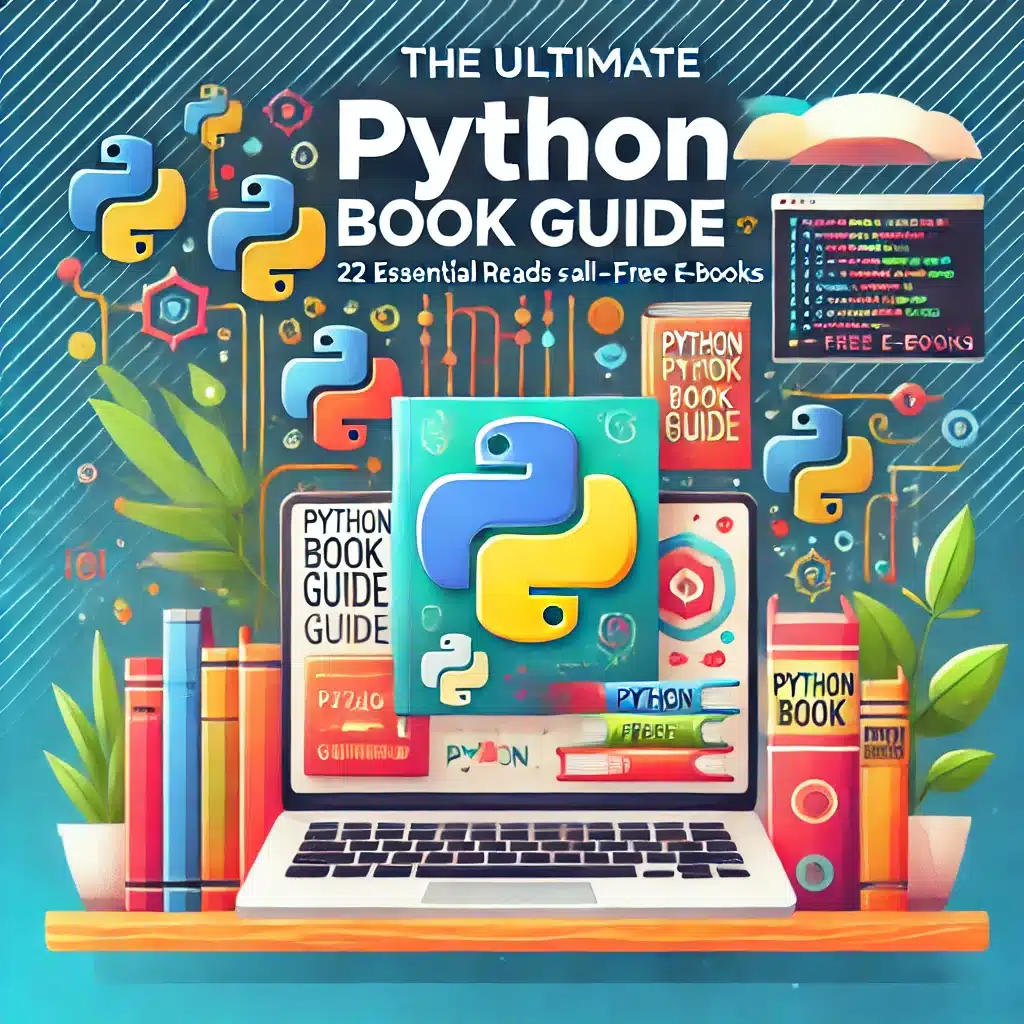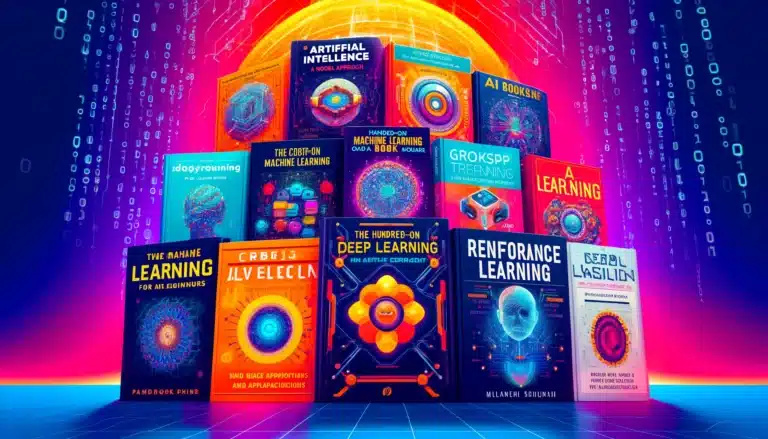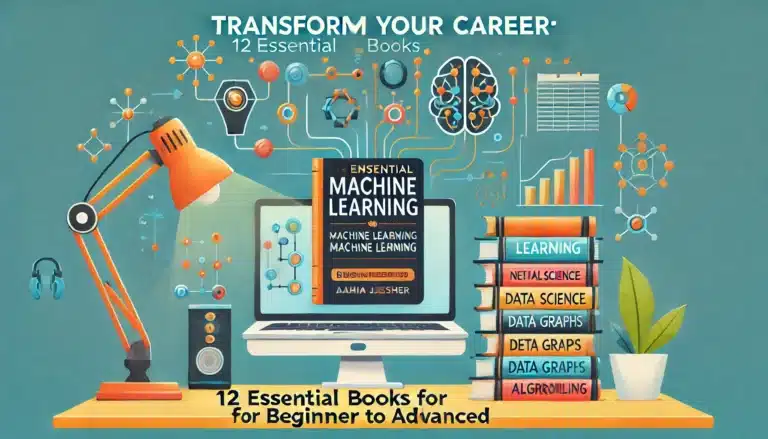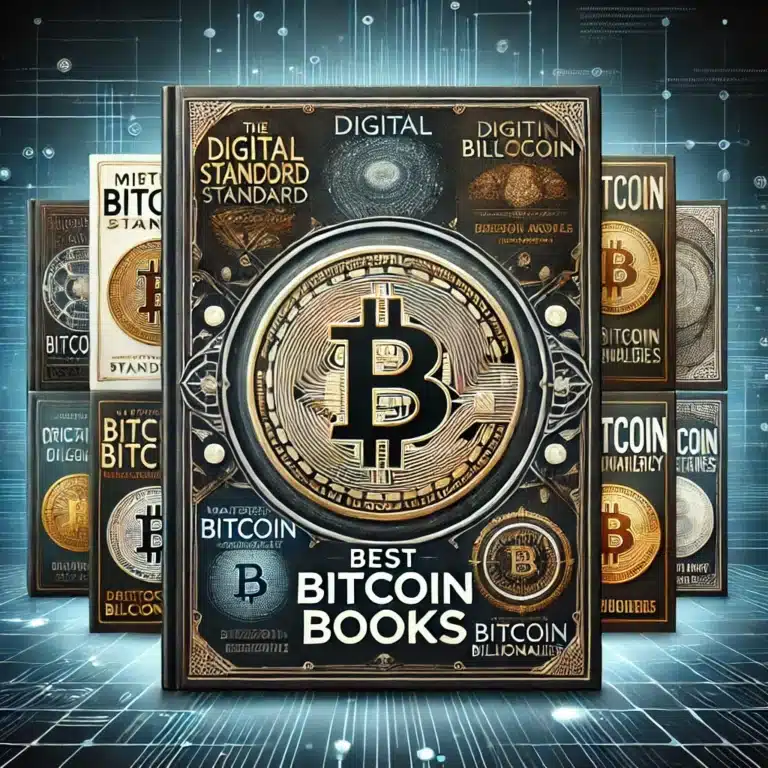The Ultimate Python Book Guide: 22 Essential Reads for All Levels + Free E-Books
Introduction
Python is one of the most popular programming languages in the world, known for its simplicity, versatility, and readability. Its user-friendly syntax makes it an excellent choice for beginners, while its powerful libraries and frameworks appeal to experienced developers. Whether you’re a novice just starting out or an advanced programmer looking to refine your skills, there’s a Python book that can meet your needs.
Can Python Be Learned by Books? Absolutely! Learning Python through books is not only possible but highly effective. Well-written Python books provide structured learning paths, comprehensive explanations, and numerous examples and exercises to reinforce understanding. They allow learners to progress at their own pace and revisit complex topics as needed.
Table of Contents
ToggleCan Python Be Self-Taught? Yes, Python is one of the best programming languages for self-taught learners. Its clear and concise syntax makes it accessible to beginners, and there is a wealth of resources available, including books, online tutorials, and community forums. Many successful Python developers are self-taught, having used books and other resources to guide their learning journey.
Are Python Books Worth It? Investing in Python books is definitely worth it. Quality Python books provide in-depth knowledge, practical insights, and expert advice that can be hard to find in free online resources. They often include real-world examples and projects that help you apply what you’ve learned. Additionally, books written by experienced authors can offer unique perspectives and tips that can enhance your programming skills.
In this guide, we have curated a list of the best Python books for beginners, intermediate learners, and advanced programmers. Additionally, we have included a section on free books for learning Python, ensuring that everyone has access to valuable learning resources. Whether you’re looking to automate tasks, dive into data science, or build complex applications, these books will help you achieve your goals.
SEO Long Tail Keywords: best Python books for beginners, learning Python through books, self-taught Python programmer, Python programming for advanced users, free Python books for learning, top Python books for developers
Beginner Python Books
- Python Crash Course by Eric Matthes
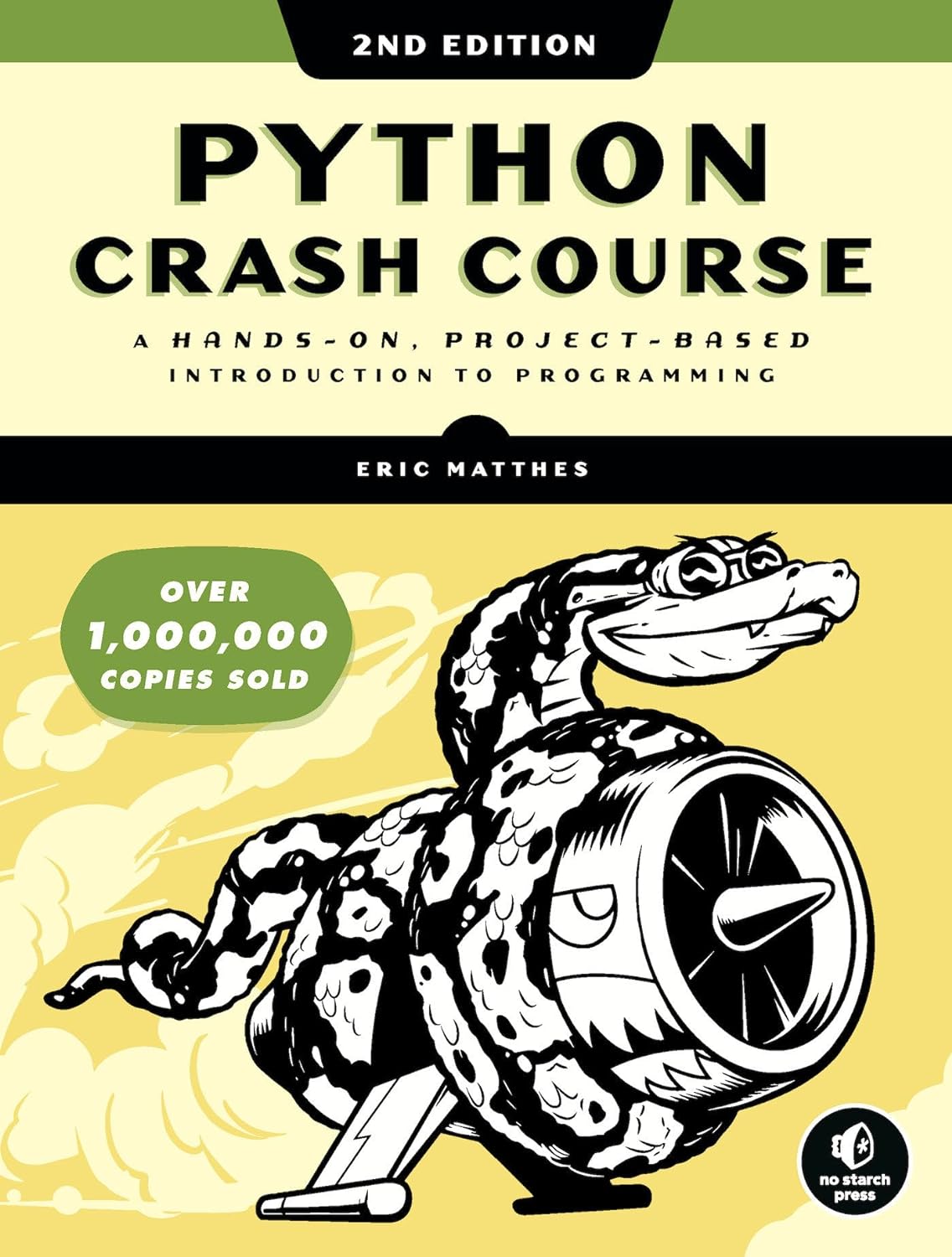
-
- Description: “Python Crash Course” is a fast-paced, comprehensive introduction to Python programming for beginners. The book is divided into two parts: the first part covers the fundamentals of Python programming, including data structures, loops, and functions. The second part involves practical projects such as creating a simple video game, developing a web application, and visualizing data. The hands-on exercises and clear explanations make this book a favorite among new programmers.
- Author: Eric Matthes
- Why you should read this book: Its hands-on approach and practical projects make learning Python fun and engaging.
- Amazon Link
- Automate the Boring Stuff with Python by Al Sweigart
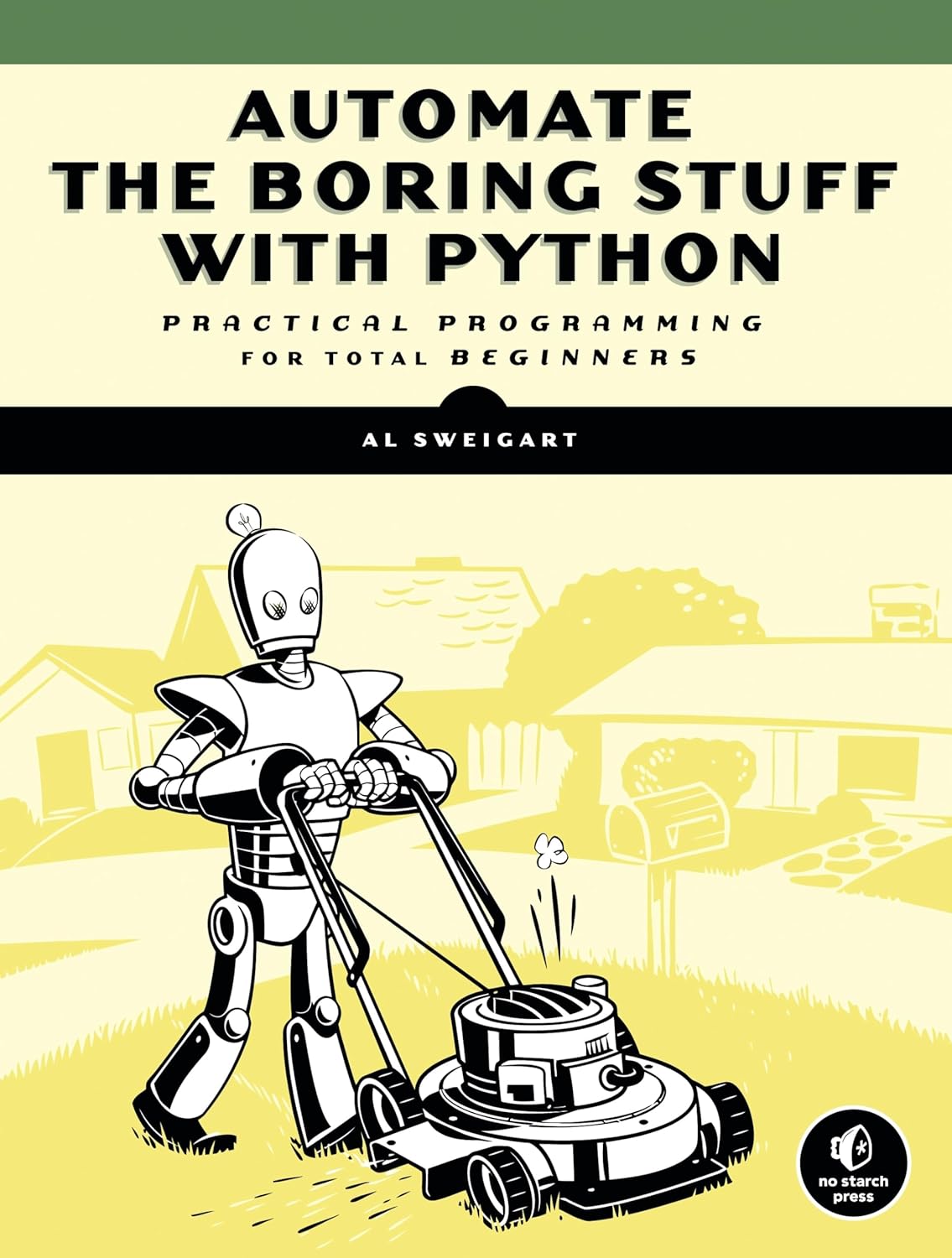
-
- Description: This book teaches you how to use Python to automate tasks like filling out forms, updating Excel spreadsheets, and scraping websites for data. Al Sweigart’s book is written in a conversational style, making it accessible for beginners. Each chapter includes step-by-step instructions, and the practical examples demonstrate how Python can be used to simplify everyday tasks.
- Author: Al Sweigart
- Why you should read this book: It’s perfect for beginners who want to make their everyday tasks more efficient.
- Amazon Link
- Learn Python the Hard Way by Zed A. Shaw
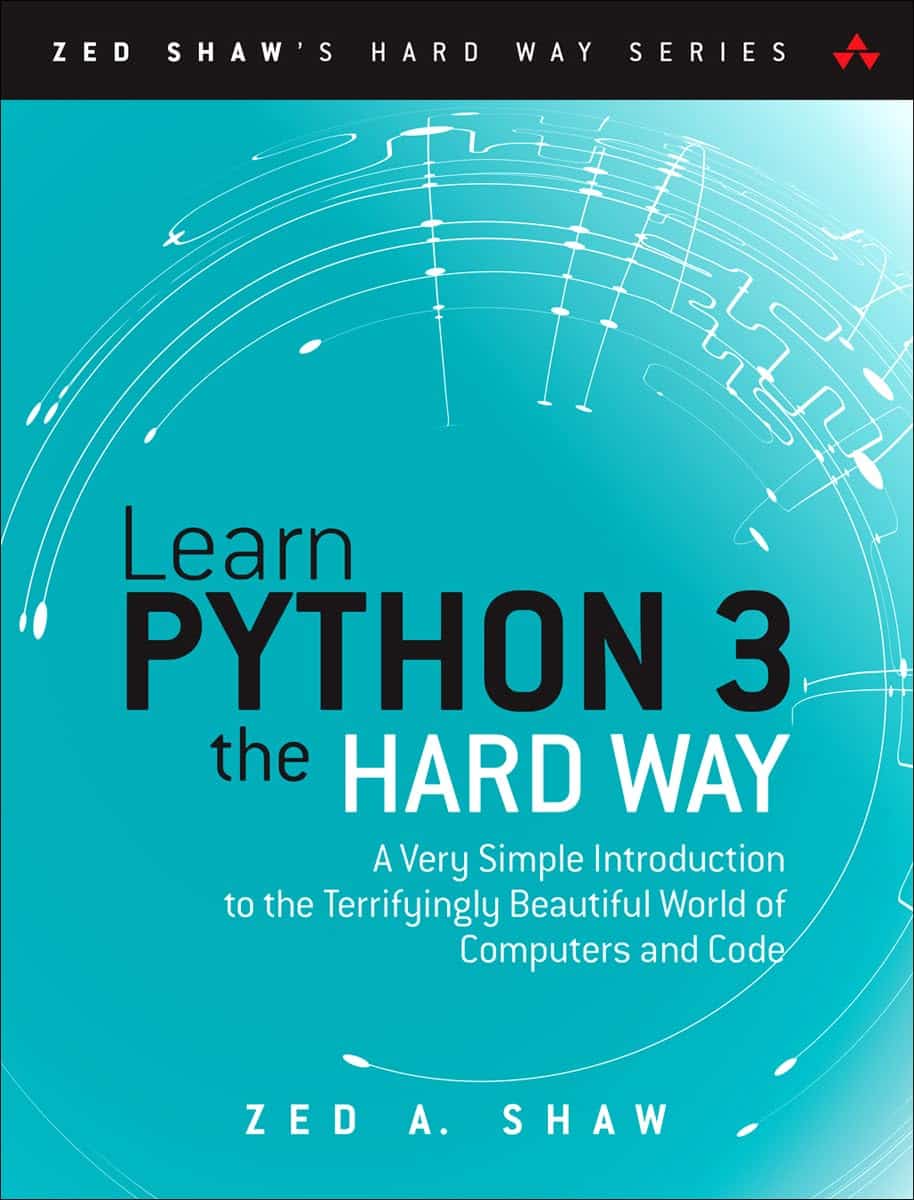
-
- Description: “Learn Python the Hard Way” provides a step-by-step guide to learning Python, emphasizing the importance of practice and discipline. The book includes 52 exercises designed to teach you how to read, write, and understand Python code. Zed A. Shaw’s approach encourages learners to type out every example, which helps to reinforce learning and develop strong programming habits.
- Author: Zed A. Shaw
- Why you should read this book: Its rigorous approach ensures you develop a strong foundation in Python programming.
- Amazon Link
- Head First Python by Paul Barry
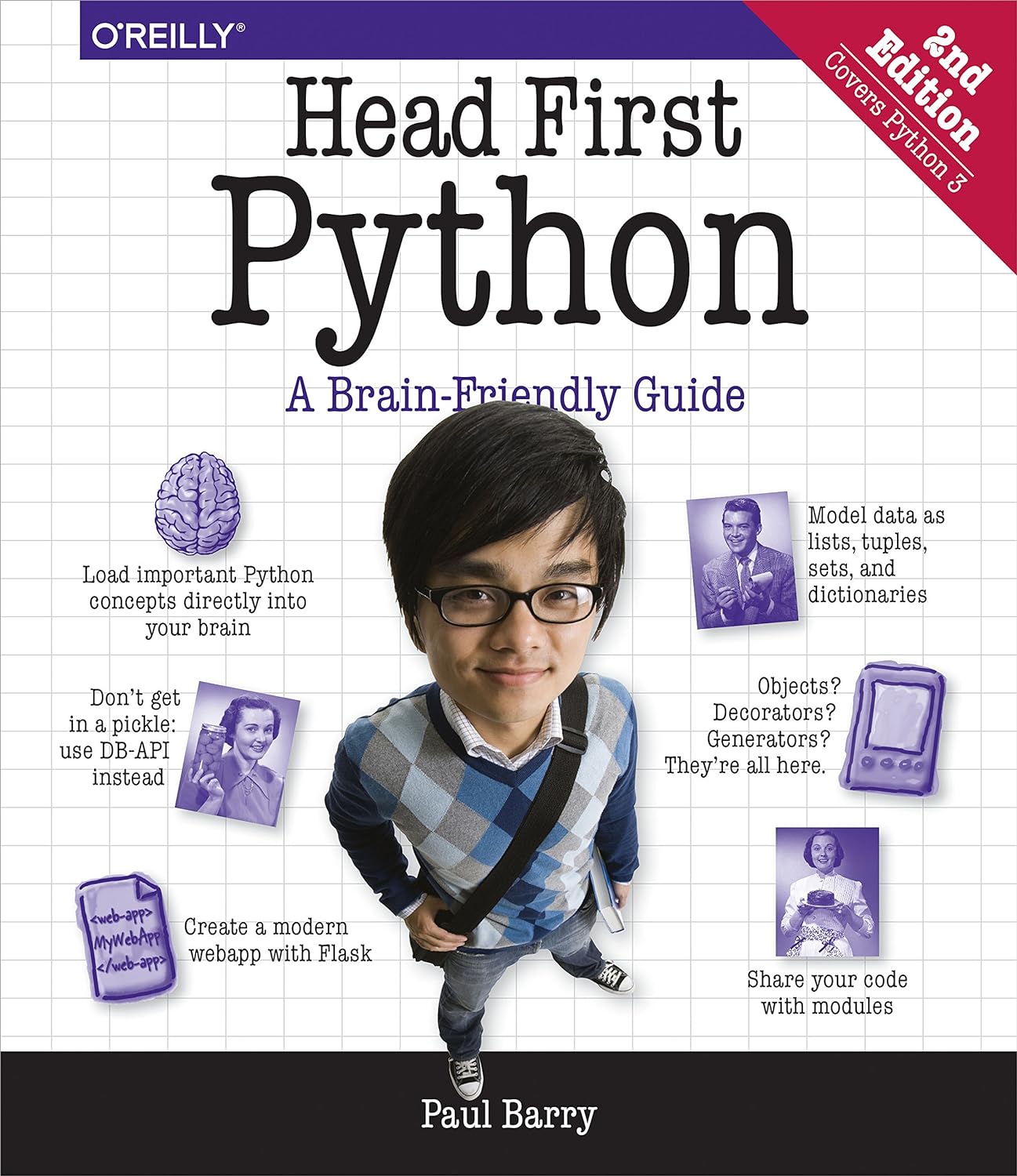
-
- Description: “Head First Python” is a brain-friendly guide that uses a visually rich format to engage readers and help them learn Python quickly. The book covers the basics of Python programming and then moves on to more advanced topics such as building web applications, manipulating data, and creating GUIs. The unique format includes puzzles, exercises, and quizzes to reinforce learning.
- Author: Paul Barry
- Why you should read this book: The engaging, visual approach makes learning Python easy and fun.
- Amazon Link
Intermediate Python Books
- Fluent Python by Luciano Ramalho
- Description: “Fluent Python” dives into Python’s more advanced features, including metaprogramming, decorators, and concurrency. Luciano Ramalho explains how to write idiomatic Python code by taking advantage of the language’s best features. The book covers data structures, object-oriented programming, functions as objects, and control flow. It also provides insights into writing more efficient and readable code.
- Author: Luciano Ramalho
- Why you should read this book: It helps intermediate programmers deepen their understanding of Python and write more efficient, readable code.
- Amazon Link
- Python Cookbook by David Beazley and Brian K. Jones
- Description: This book provides recipes for solving a wide range of problems in Python, from web development to data analysis. Each recipe contains code samples that you can use in your own projects, along with a detailed explanation of how the code works. The “Python Cookbook” is an excellent resource for intermediate programmers looking to solve specific programming challenges and expand their knowledge.
- Authors: David Beazley and Brian K. Jones
- Why you should read this book: It’s a practical guide filled with solutions to common Python programming challenges.
- Amazon Link
- Effective Python: 90 Specific Ways to Write Better Python by Brett Slatkin
- Description: This book offers 90 actionable tips and best practices for writing cleaner, more Pythonic code. Brett Slatkin covers topics such as code style, best practices, and optimization. Each item in the book is self-contained, making it easy to read in small doses. The tips are based on real-world experience and are designed to help you write better Python code.
- Author: Brett Slatkin
- Why you should read this book: It’s an excellent resource for refining your Python skills and improving code quality.
- Amazon Link
- Python Tricks: A Buffet of Awesome Python Features by Dan Bader
- Description: This book explores lesser-known features of Python and practical techniques to improve your coding efficiency. Dan Bader presents tips and tricks that can help you write more elegant and efficient Python code. The book covers advanced features such as context managers, generators, and decorators, and includes examples that illustrate how to apply these techniques in real-world scenarios.
- Author: Dan Bader
- Why you should read this book: It’s perfect for those looking to learn advanced tips and tricks to enhance their Python programming.
- Amazon Link
Advanced Python Books
- Python in a Nutshell by Alex Martelli
- Description: “Python in a Nutshell” provides a comprehensive reference to Python’s syntax, libraries, and advanced features. Alex Martelli covers both Python 2 and Python 3, and the book includes detailed information on data types, functions, classes, and modules. It also addresses more advanced topics such as metaprogramming, concurrency, and network programming. This book is an essential reference for experienced Python developers.
- Author: Alex Martelli
- Why you should read this book: It’s an essential reference for experienced Python developers looking to deepen their knowledge.
- Amazon Link
- Programming Python by Mark Lutz
- Description: This book covers advanced topics in Python programming, including system administration, GUIs, and web development. Mark Lutz provides in-depth coverage of the language and its libraries, and includes numerous code examples and exercises. The book is designed for experienced programmers who want to take their Python skills to the next level.
- Author: Mark Lutz
- Why you should read this book: It’s a comprehensive guide for those looking to master Python for real-world applications.
- Amazon Link
- Python Data Science Handbook by Jake VanderPlas
- Description: This book is a complete guide to using Python for data science, including libraries like NumPy, Pandas, Matplotlib, and Scikit-Learn. Jake VanderPlas covers essential topics such as data manipulation, visualization, and machine learning. The book includes numerous examples and practical exercises that help you apply what you learn to real-world data science problems.
- Author: Jake VanderPlas
- Why you should read this book: It’s essential for advanced users looking to leverage Python for data analysis and machine learning.
- Amazon Link
- Advanced Python Programming by Dr. Gabriele Lanaro, Quan Nguyen, and Sakis Kasampalis
- Description: This book provides advanced insights into Python programming, including multiprocessing, asynchronous programming, and metaprogramming. The authors cover topics such as performance optimization, design patterns, and test-driven development. The book includes numerous examples and practical exercises that help you apply advanced programming techniques to your own projects.
- Authors: Dr. Gabriele Lanaro, Quan Nguyen, Sakis Kasampalis
- Why you should read this book: It’s ideal for those who want to push the boundaries of what’s possible with Python.
- Amazon Link
Free Books for Learning Python
- Automate the Boring Stuff with Python by Al Sweigart (available free online)
- Description: This book teaches you how to use Python to automate tasks like filling out forms, updating Excel spreadsheets, and scraping websites for data. The free online version includes the complete text of the book, along with interactive exercises and video tutorials.
- Free Link
- URL:
https://automatetheboringstuff.com/
- Think Python: How to Think Like a Computer Scientist by Allen B. Downey
- Description: This book is an introduction to Python programming for beginners. It covers basic concepts such as variables, functions, and loops, and includes exercises to help you practice what you learn. The free online version is available in HTML and PDF formats.
- Free Link
- URL:
https://greenteapress.com/wp/think-python-2e/
- Python for Everybody by Dr. Charles R. Severance
- Description: This book is designed for people who want to learn programming and data science using Python. It covers topics such as data structures, web scraping, and working with databases. The free online version includes the complete text of the book, along with video lectures and interactive exercises.
- Free Link
- URL:
https://www.py4e.com/book.php
- A Byte of Python by Swaroop C H
- Description: “A Byte of Python” is a beginner’s book on Python programming. It covers basic concepts and syntax, and includes examples and exercises to help you practice what you learn. The free online version is available in multiple formats, including HTML, PDF, and ePub.
- Free Link
- URL:
https://python.swaroopch.com/
- Dive Into Python 3 by Mark Pilgrim
- Description: This book is an introduction to Python 3 programming for experienced programmers. It covers topics such as data types, functions, and modules, and includes numerous examples and exercises. The free online version is available in HTML and PDF formats.
- Free Link
- URL:
http://www.diveintopython3.net/
- Invent Your Own Computer Games with Python by Al Sweigart
- Description: This book teaches you how to create simple computer games using Python. It covers basic programming concepts and techniques, and includes step-by-step instructions for creating games such as Hangman, Tic-Tac-Toe, and Reversi. The free online version is available in HTML and PDF formats.
- Free Link
- URL:
https://inventwithpython.com/
- Learn Python the Hard Way by Zed A. Shaw (available free online)
- Description: “Learn Python the Hard Way” provides a step-by-step guide to learning Python, emphasizing the importance of practice and discipline. The free online version includes the complete text of the book, along with video tutorials and interactive exercises.
- Free Link
- URL:
https://learnpythonthehardway.org/python3/
- Introduction to Machine Learning with Python by Andreas C. Müller and Sarah Guido (Sample Chapters)
- Description: This book is a practical guide to using Python for machine learning. It covers essential topics such as data preprocessing, model training, and evaluation. The free sample chapters provide a detailed introduction to the book’s content and approach.
- Free Link
- URL:
https://www.oreilly.com/library/view/introduction-to-machine/9781449369880/
- Python Programming by Wikibooks
- Description: This is a collaborative, open-source textbook on Python programming. It covers basic and advanced topics, including data types, functions, classes, and modules. The free online version is available in HTML format and is regularly updated by the community.
- Free Link
- URL:
https://en.wikibooks.org/wiki/Python_Programming
- From Python to NumPy by Nicolas P. Rougier
- Description: This book is a guide to using Python and NumPy for scientific computing. It covers topics such as array manipulation, mathematical operations, and data visualization. The free online version is available in HTML and PDF formats.
- Free Link
- URL:
https://www.labri.fr/perso/nrougier/from-python-to-numpy/
These resources will help you start your journey with Python, advance your skills, or dive into specialized areas like data science and machine learning. Happy coding!

Title Suggestions for Viral and SEO Ranking
- “12 Best Python Books for Beginners to Advanced Programmers: Your Ultimate Guide to Mastering Python”
- “Top 22 Python Books for Every Skill Level: Free and Paid Resources Included”
- “Learn Python with These Must-Read Books: From Novice to Expert in No Time”
- “The Ultimate Python Book Guide: 22 Essential Reads for All Levels + Free E-Books”
- “Best Python Books for Self-Learning: 12 Paid and 10 Free Resources to Boost Your Skills”
For a more tailored and specific title:
“22 Best Python Books for All Levels: Top Picks and Free Resources for Self-Taught Programmers”
This title combines high-value keywords like “best Python books,” “all levels,” and “free resources,” making it highly attractive for search engines and readers alike.

The Ultimate Python Book Guide: 22 Essential Reads for All Levels + Free E-Books
Python is one of the most popular programming languages in the world, known for its simplicity, versatility, and readability. Its user-friendly syntax makes it an excellent choice for beginners, while its powerful libraries and frameworks appeal to experienced developers. Whether you’re a novice just starting out or an advanced programmer looking to refine your skills, there’s a Python book that can meet your needs.
Can Python Be Learned by Books? Absolutely! Learning Python through books is not only possible but highly effective. Well-written Python books provide structured learning paths, comprehensive explanations, and numerous examples and exercises to reinforce understanding. They allow learners to progress at their own pace and revisit complex topics as needed.
Can Python Be Self-Taught? Yes, Python is one of the best programming languages for self-taught learners. Its clear and concise syntax makes it accessible to beginners, and there is a wealth of resources available, including books, online tutorials, and community forums. Many successful Python developers are self-taught, having used books and other resources to guide their learning journey.
Are Python Books Worth It? Investing in Python books is definitely worth it. Quality Python books provide in-depth knowledge, practical insights, and expert advice that can be hard to find in free online resources. They often include real-world examples and projects that help you apply what you’ve learned. Additionally, books written by experienced authors can offer unique perspectives and tips that can enhance your programming skills.
In this guide, we have curated a list of the best Python books for beginners, intermediate learners, and advanced programmers. Additionally, we have included a section on free books for learning Python, ensuring that everyone has access to valuable learning resources. Whether you’re looking to automate tasks, dive into data science, or build complex applications, these books will help you achieve your goals.
Beginner Python Books
- Python Crash Course by Eric Matthes
- Description: “Python Crash Course” is a fast-paced, comprehensive introduction to Python programming for beginners. The book is divided into two parts: the first part covers the fundamentals of Python programming, including data structures, loops, and functions. The second part involves practical projects such as creating a simple video game, developing a web application, and visualizing data. The hands-on exercises and clear explanations make this book a favorite among new programmers.
- Author: Eric Matthes
- Why you should read this book: Its hands-on approach and practical projects make learning Python fun and engaging.
- Amazon Link
- Automate the Boring Stuff with Python by Al Sweigart
- Description: This book teaches you how to use Python to automate tasks like filling out forms, updating Excel spreadsheets, and scraping websites for data. Al Sweigart’s book is written in a conversational style, making it accessible for beginners. Each chapter includes step-by-step instructions, and the practical examples demonstrate how Python can be used to simplify everyday tasks.
- Author: Al Sweigart
- Why you should read this book: It’s perfect for beginners who want to make their everyday tasks more efficient.
- Amazon Link
- Learn Python the Hard Way by Zed A. Shaw
- Description: “Learn Python the Hard Way” provides a step-by-step guide to learning Python, emphasizing the importance of practice and discipline. The book includes 52 exercises designed to teach you how to read, write, and understand Python code. Zed A. Shaw’s approach encourages learners to type out every example, which helps to reinforce learning and develop strong programming habits.
- Author: Zed A. Shaw
- Why you should read this book: Its rigorous approach ensures you develop a strong foundation in Python programming.
- Amazon Link
- Head First Python by Paul Barry
- Description: “Head First Python” is a brain-friendly guide that uses a visually rich format to engage readers and help them learn Python quickly. The book covers the basics of Python programming and then moves on to more advanced topics such as building web applications, manipulating data, and creating GUIs. The unique format includes puzzles, exercises, and quizzes to reinforce learning.
- Author: Paul Barry
- Why you should read this book: The engaging, visual approach makes learning Python easy and fun.
- Amazon Link
Intermediate Python Books
- Fluent Python by Luciano Ramalho
- Description: “Fluent Python” dives into Python’s more advanced features, including metaprogramming, decorators, and concurrency. Luciano Ramalho explains how to write idiomatic Python code by taking advantage of the language’s best features. The book covers data structures, object-oriented programming, functions as objects, and control flow. It also provides insights into writing more efficient and readable code.
- Author: Luciano Ramalho
- Why you should read this book: It helps intermediate programmers deepen their understanding of Python and write more efficient, readable code.
- Amazon Link
- Python Cookbook by David Beazley and Brian K. Jones
- Description: This book provides recipes for solving a wide range of problems in Python, from web development to data analysis. Each recipe contains code samples that you can use in your own projects, along with a detailed explanation of how the code works. The “Python Cookbook” is an excellent resource for intermediate programmers looking to solve specific programming challenges and expand their knowledge.
- Authors: David Beazley and Brian K. Jones
- Why you should read this book: It’s a practical guide filled with solutions to common Python programming challenges.
- Amazon Link
- Effective Python: 90 Specific Ways to Write Better Python by Brett Slatkin
- Description: This book offers 90 actionable tips and best practices for writing cleaner, more Pythonic code. Brett Slatkin covers topics such as code style, best practices, and optimization. Each item in the book is self-contained, making it easy to read in small doses. The tips are based on real-world experience and are designed to help you write better Python code.
- Author: Brett Slatkin
- Why you should read this book: It’s an excellent resource for refining your Python skills and improving code quality.
- Amazon Link
- Python Tricks: A Buffet of Awesome Python Features by Dan Bader
- Description: This book explores lesser-known features of Python and practical techniques to improve your coding efficiency. Dan Bader presents tips and tricks that can help you write more elegant and efficient Python code. The book covers advanced features such as context managers, generators, and decorators, and includes examples that illustrate how to apply these techniques in real-world scenarios.
- Author: Dan Bader
- Why you should read this book: It’s perfect for those looking to learn advanced tips and tricks to enhance their Python programming.
- Amazon Link
Advanced Python Books
- Python in a Nutshell by Alex Martelli
- Description: “Python in a Nutshell” provides a comprehensive reference to Python’s syntax, libraries, and advanced features. Alex Martelli covers both Python 2 and Python 3, and the book includes detailed information on data types, functions, classes, and modules. It also addresses more advanced topics such as metaprogramming, concurrency, and network programming. This book is an essential reference for experienced Python developers.
- Author: Alex Martelli
- Why you should read this book: It’s an essential reference for experienced Python developers looking to deepen their knowledge.
- Amazon Link
- Programming Python by Mark Lutz
- Description: This book covers advanced topics in Python programming, including system administration, GUIs, and web development. Mark Lutz provides in-depth coverage of the language and its libraries, and includes numerous code examples and exercises. The book is designed for experienced programmers who want to take their Python skills to the next level.
- Author: Mark Lutz
- Why you should read this book: It’s a comprehensive guide for those looking to master Python for real-world applications.
- Amazon Link
- Python Data Science Handbook by Jake VanderPlas
- Description: This book is a complete guide to using Python for data science, including libraries like NumPy, Pandas, Matplotlib, and Scikit-Learn. Jake VanderPlas covers essential topics such as data manipulation, visualization, and machine learning. The book includes numerous examples and practical exercises that help you apply what you learn to real-world data science problems.
- Author: Jake VanderPlas
- Why you should read this book: It’s essential for advanced users looking to leverage Python for data analysis and machine learning.
- Amazon Link
- Advanced Python Programming by Dr. Gabriele Lanaro, Quan Nguyen, and Sakis Kasampalis
- Description: This book provides advanced insights into Python programming, including multiprocessing, asynchronous programming, and metaprogramming. The authors cover topics such as performance optimization, design patterns, and test-driven development. The book includes numerous examples and practical exercises that help you apply advanced programming techniques to your own projects.
- Authors: Dr. Gabriele Lanaro, Quan Nguyen, Sakis Kasampalis
- Why you should read this book: It’s ideal for those who want to push the boundaries of what’s possible with Python.
- Amazon Link
Free Books for Learning Python
- Automate the Boring Stuff with Python by Al Sweigart (available free online)
- Description: This book teaches you how to use Python to automate tasks like filling out forms, updating Excel spreadsheets, and scraping websites for data. The free online version includes the complete text of the book, along with interactive exercises and video tutorials.
- Free Link
- URL:
https://automatetheboringstuff.com/
- Think Python: How to Think Like a Computer Scientist by Allen B. Downey
- Description: This book is an introduction to Python programming for beginners. It covers basic concepts such as variables, functions, and loops, and includes exercises to help you practice what you learn. The free online version is available in HTML and PDF formats.
- Free Link
- URL:
https://greenteapress.com/wp/think-python-2e/
- Python for Everybody by Dr. Charles R. Severance
- Description: This book is designed for people who want to learn programming and data science using Python. It covers topics such as data structures, web scraping, and working with databases. The free online version includes the complete text of the book, along with video lectures and interactive exercises.
- Free Link
- URL:
https://www.py4e.com/book.php
- A Byte of Python by Swaroop C H
- Description: “A Byte of Python” is a beginner’s book on Python programming. It covers basic concepts and syntax, and includes examples and exercises to help you practice what you learn. The free online version is available in multiple formats, including HTML, PDF, and ePub.
- Free Link
- URL:
https://python.swaroopch.com/
- Dive Into Python 3 by Mark Pilgrim
- Description: This book is an introduction to Python 3 programming for experienced programmers. It covers topics such as data types, functions, and modules, and includes numerous examples and exercises. The free online version is available in HTML and PDF formats.
- Free Link
- URL:
http://www.diveintopython3.net/
- Invent Your Own Computer Games with Python by Al Sweigart
- Description: This book teaches you how to create simple computer games using Python. It covers basic programming concepts and techniques, and includes step-by-step instructions for creating games such as Hangman, Tic-Tac-Toe, and Reversi. The free online version is available in HTML and PDF formats.
- Free Link
- URL:
https://inventwithpython.com/
- Learn Python the Hard Way by Zed A. Shaw (available free online)
- Description: “Learn Python the Hard Way” provides a step-by-step guide to learning Python, emphasizing the importance of practice and discipline. The free online version includes the complete text of the book, along with video tutorials and interactive exercises.
- Free Link
- URL:
https://learnpythonthehardway.org/python3/
- Introduction to Machine Learning with Python by Andreas C. Müller and Sarah Guido (Sample Chapters)
- Description: This book is a practical guide to using Python for machine learning. It covers essential topics such as data preprocessing, model training, and evaluation. The free sample chapters provide a detailed introduction to the book’s content and approach.
- Free Link
- URL:
https://www.oreilly.com/library/view/introduction-to-machine/9781449369880/
- Python Programming by Wikibooks
- Description: This is a collaborative, open-source textbook on Python programming. It covers basic and advanced topics, including data types, functions, classes, and modules. The free online version is available in HTML format and is regularly updated by the community.
- Free Link
- URL:
https://en.wikibooks.org/wiki/Python_Programming
- From Python to NumPy by Nicolas P. Rougier
- Description: This book is a guide to using Python and NumPy for scientific computing. It covers topics such as array manipulation, mathematical operations, and data visualization. The free online version is available in HTML and PDF formats.
- Free Link
- URL:
https://www.labri.fr/perso/nrougier/from-python-to-numpy/
These resources will help you start your journey with Python, advance your skills, or dive into specialized areas like data science and machine learning. Happy coding!
